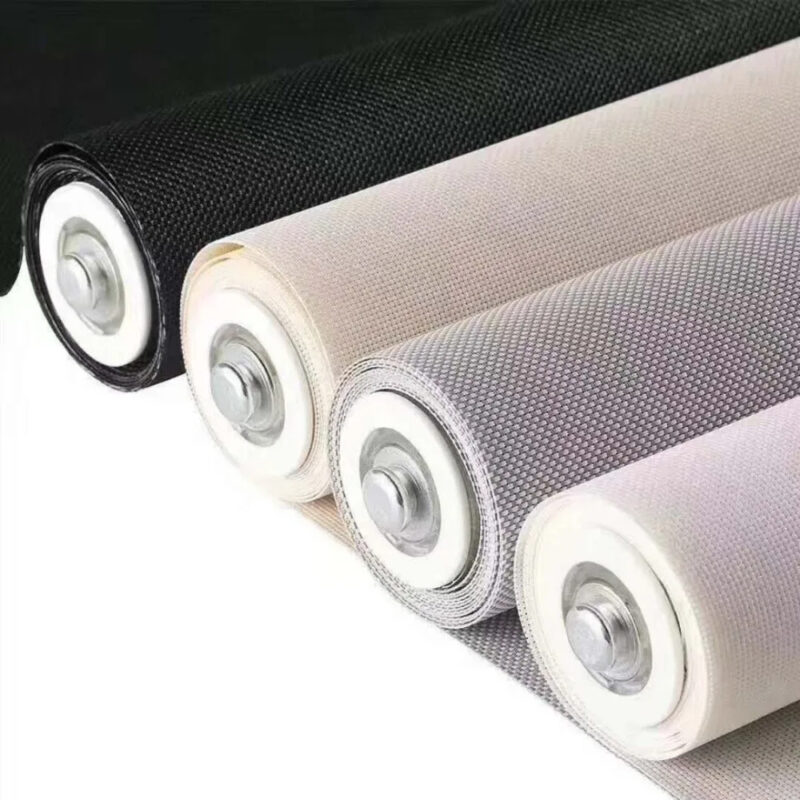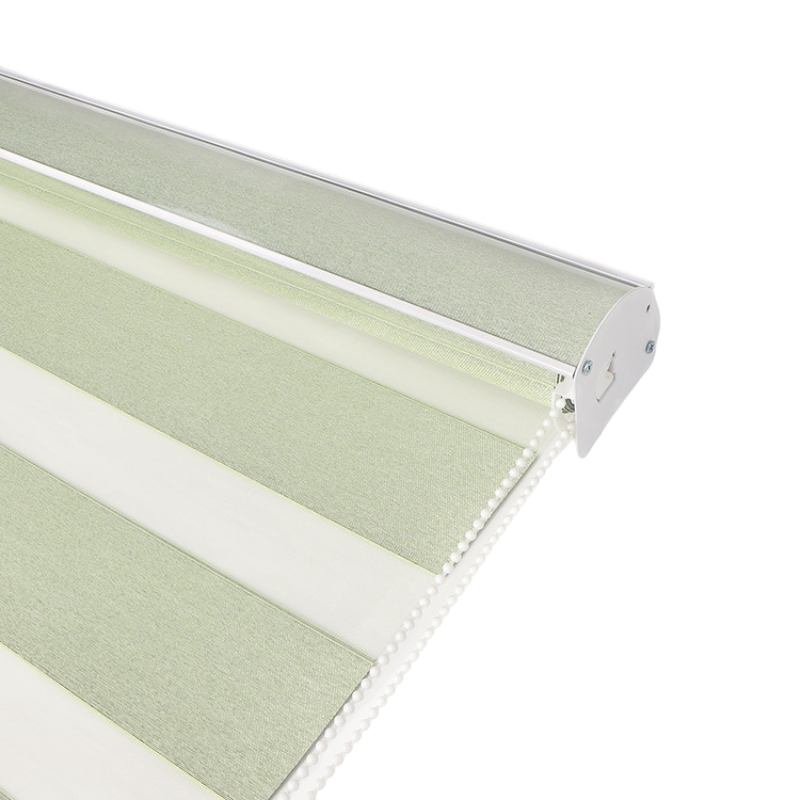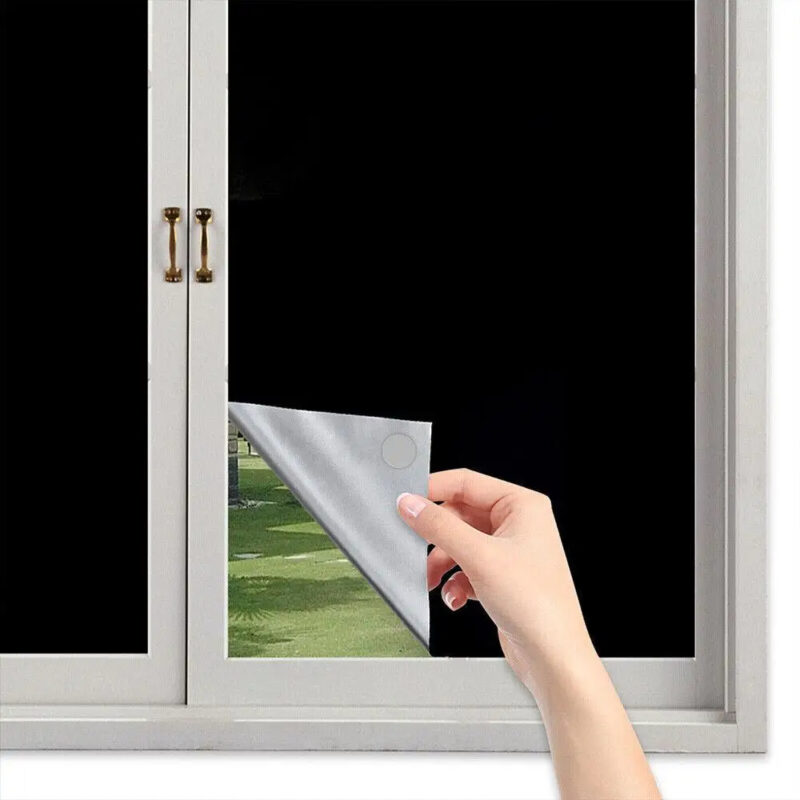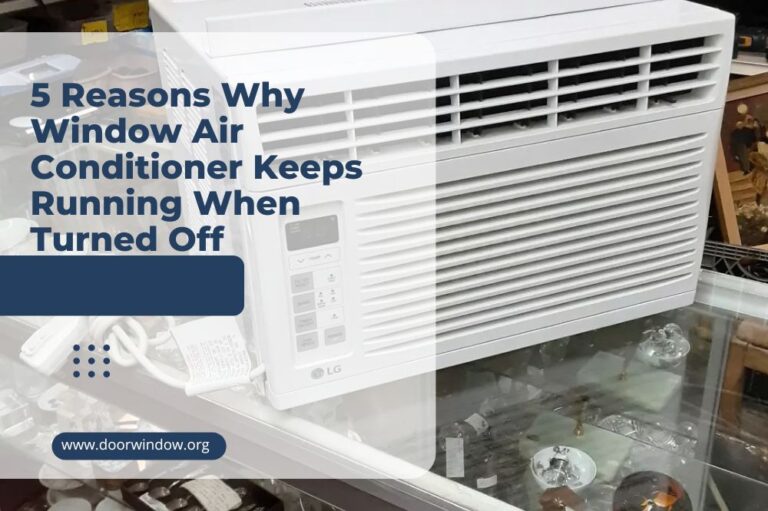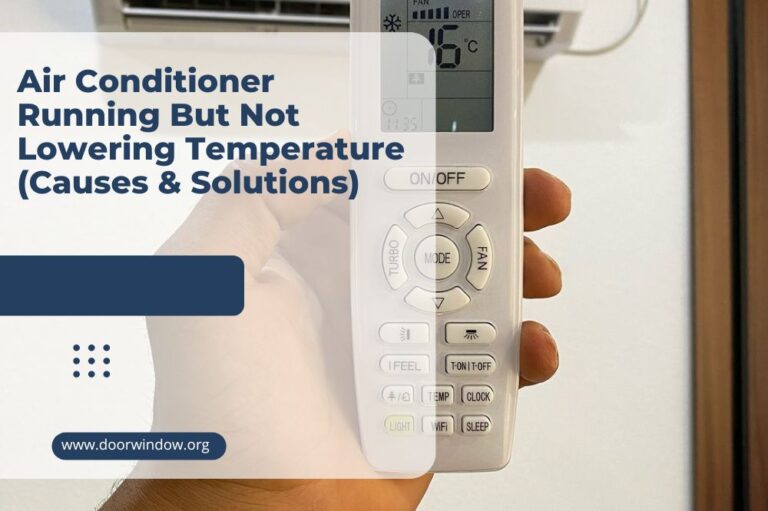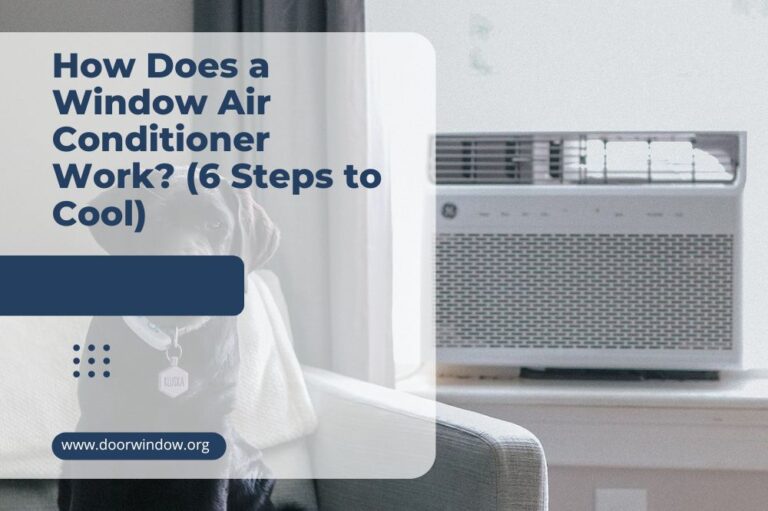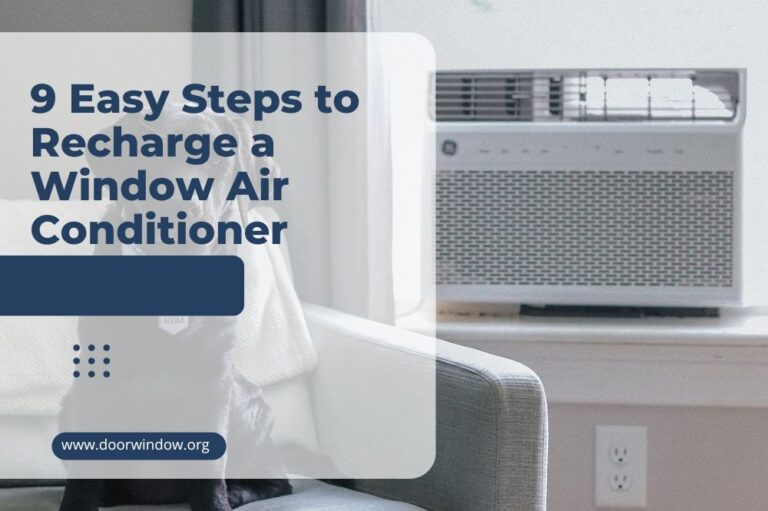How Long Can You Leave A Window Air Conditioner Running?
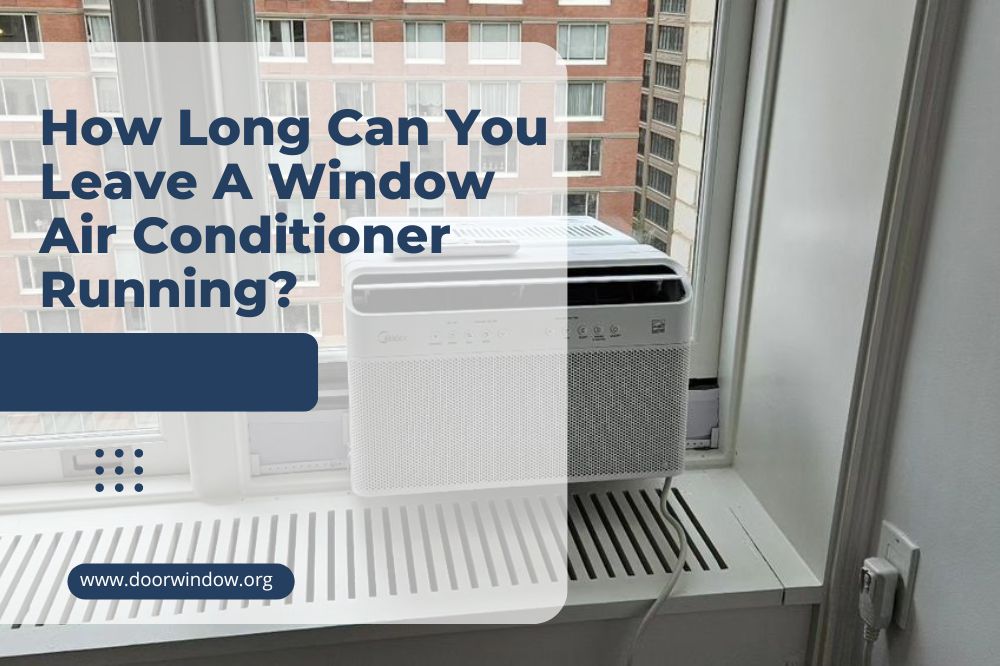
Ever wondered how long can you leave a window air conditioner running? Learning the running time of your AC, along with other maintenance tips, is crucial. This positively impacts not just the working condition of the unit but also its lifespan.
In this article, you will know whether running your window AC all day long is recommended or not. You will also gain an understanding of the consequences of leaving your AC working throughout the day. Along the way, we will include some tips on how to maintain your unit.
How Long Can a Window Air Conditioner Run Continuously?
Basically, a window air conditioner is designed to work 24 hours a day. This statement, however, is debatable as there are a lot of things to factor in when owning an AC unit. These include proper usage, age of the unit, and environmental effects, among others.
So, the next question would be, is it safe to run your window air conditioner 24/7? While the major mechanisms of an AC are suited to run all day long, it may be best to reconsider your options accordingly.
There are several downsides of using the unit without break, and this has been backed up by several HVAC sites, including HVACseer and HVAC Guides 101. To guide you, below are some of the main reasons why using the window AC all day is not advisable.
1. It causes potential danger, especially if left unattended.
If you are at home, you can easily keep an eye on the AC unit. However, things may not be the same if you leave your house. You’ll never know what might happen if you are away―there may be a faulty component that could lead to fire or perhaps bad weather that may cause damage to your unit.
Whatever it is, try to turn your AC off if you go out to avoid accidents. Meanwhile, if you own a modern window AC, chances are, you may be able to control it using a smart thermostat. This is a great investment if you want to operate the unit even in your workplace or from a faraway location.
The digital thermostat allows you to turn on/off your AC, change fan speeds, modify the operating modes, and such. If you master the settings and all other cool features of your thermostat, this can optimize the performance of your unit and even help in the reduction of your utility bills.
If you want to invest in a good digital thermostat, make sure you learn the technicalities beforehand. There are several YouTube videos that explain everything you need to know about these tools, so do your research diligently.
2. It strains the power grid tremendously.
There’s a higher possibility of strain on the power grid if all window AC units in one household are running nonstop. And if the usage of the AC systems is at high power, this may trip the circuit breaker, which can further lead to a power outage.
Aside from these, running all units simultaneously at high power can also negatively impact the compressor. This is generally true for air conditioners that are way past their working years. Older air units are associated with wear and tear, leading to major damage to the HVAC system.
3. It consumes higher energy.
Window air conditioners that run without break easily achieve the desired temperature you set on the thermostat. Once it reaches the expected temperature, the thermostat signals the unit to pipe down. Unfortunately, if this process happens frequently, it can result in the tripping of the air conditioner.
Accordingly, when the unit switches between running and tripping (start-stop activity or short cycling) at a high speed, it takes up more energy. This is where your utility bills start to increase because of the disturbances in the refrigeration cycle.
In normal cases, your unit should run at a full speed instead of a start-stop scenario. Short cycling is one of the major AC problems that could potentially harm the HVAC system. Therefore, it’s suggested that you turn off the unit if it’s not in use.
In addition, you have to make sure that the thermostat is working properly. Try to program it where the unit automatically turns off once the optimal temperature has been reached.
And if your bill is still high even with the lesser hours of usage, it’s highly recommended to get help from an HVAC professional. There could be an underlying cause that resulted in the higher consumption of energy such as low refrigerant, dirty air filters, duct leaks, failing parts, or even bad installation.
4. It may not be effective in terms of indoor air dehumidification.
Aside from cooling the room, air conditioners dehumidify indoor air by completing the refrigerant cycle. This cycle takes place when the system acquires the hot air inside the room and then courses through the condenser. From there, it rejects the heated refrigerant outside.
During the process, the unit absorbs moisture from the room and dehumidifies it. This is one of the major functions of the HVAC system as it minimizes the contamination of the air quality inside your home. It reduces the growth of allergens as well as eliminates unwanted odor caused by damp areas.
Meanwhile, if you continuously run your window air conditioner, the unit could not efficiently complete the process, or simply there is short cycle. Generally, air conditioners work at the most optimum level when run in intermittent intervals.
Another thing to take note of is that nonstop usage could lead to dirty AC components, especially the air filter. A dirty air filter restricts the airflow and builds up allergen, which could potentially lead to respiratory problems.
5. It poses danger to the environment.
Yes, air conditioners are downright valuable, especially during hot summer nights. Unfortunately, these useful units are terrible for the environment. So, if you’ve been running your units around the clock, this might be the best time to reassess your actions.
An air conditioner is fueled by electricity and it utilizes a harmful chemical compound called refrigerant. This working fluid then produces a byproduct of gas emissions that are destructive to the planet. And if there are refrigerant leaks, this could post damage not just to the environment but also to your health.
With these circumstances at hand, this doesn’t mean that using air conditioners is such a bad thing. All you have to do is be practical. Turn off the unit if the desired temperature has already been achieved. You may think that your actions are insignificant, but every little effort goes a long way.
In fact, based on the 2013 study listed in the American Journal of Engineering Research, a 1.5-ton air conditioner that runs all day releases 5344g of carbon. On the contrary, a unit that only works for 8 hours emits 222g of carbon. Now, you see the vast difference when you only use your AC when needed.
Your simple actions save energy and help reduce the total emissions of carbon dioxide into the air, which could lead to 117 million metric tons every year, according to the US Department of Energy. The risk is still there, but it is much lower.
6. It shortens the lifespan of the unit.
Using your air conditioner nonstop has a notable effect on its lifespan. Basically, window air conditioning units may last for 10 to 25 years, depending on the brand and your usage. This age range, however, could be shortened due to improper handling and irregular maintenance.
As you use the unit relentlessly without any break, this causes wear and tear on the components, especially the compressor, condenser coil, evaporator coil, and expansion valve. Therefore, if you want to maximize the working life of your unit, you need to be mindful of the frequency of its usage.
Regular tune-ups and annual professional maintenance are also crucial when owning any kind of air conditioner. These help in ensuring optimal performance as well as the longevity of the equipment.
The Bottom Line
Now that you have discovered the different factors that make it less possible to run the window air conditioners all day long, it’s up to you to make the decision. While AC units can generally work 24 hours a day, it’s very important to consider the circumstance that you are in. These include the following:
- The current situation―if no one oversees the unit, this can be very risky.
- The working condition―if all units run simultaneously at a full speed, this can cause a power outage.
- The financial aspect―if the unit’s working cycle is frequently disrupted, it increases the energy consumption, hence higher the utility bills.
- The health impact―if the unit is used for a long time without proper maintenance, it can lead to health problems.
- The environment―if the unit is running without stop, it can emit higher carbon dioxide.
- The lifespan―if the unit runs incessantly, it minimizes its working years.
So, is leaving your window air conditioner running all the day long worth it? Weigh in the options that play a huge role in the performance and longevity of your unit. If you have further questions, let us know and we’ll be sure to help you as much as we can.

